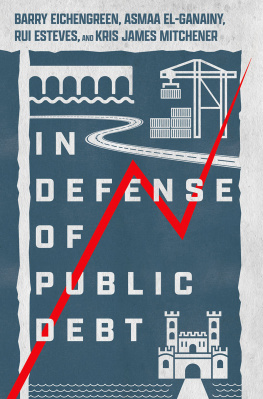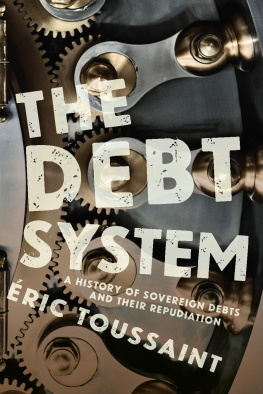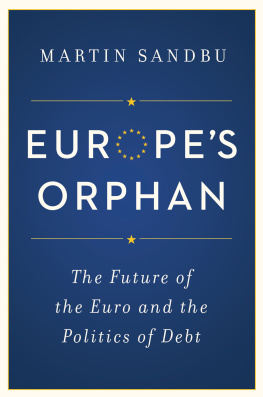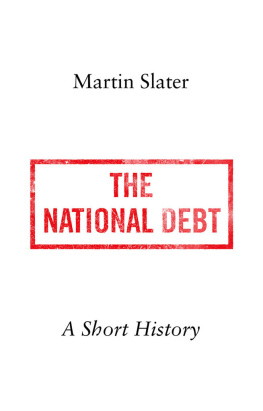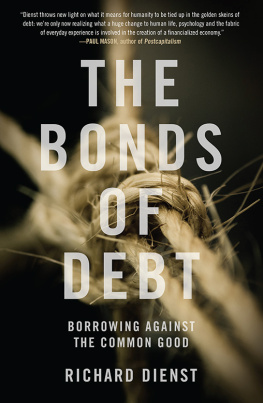Contents
Arjen Kleinherenbrink and Sjoerd van Tuinen
milie Bernier
Jean-Franois Bissonnette
Richard Dienst
Philip Goodchild
Steven Shaviro
Elettra Stimilli
Guide
CULTURE, SOCIETY & POLITICS
Contemporary culture has eliminated the concept and public figure of the intellectual. A cretinous anti-intellectualism presides, cheer-led by hacks in the pay of multinational corporations who reassure their bored readers that there is no need to rouse themselves from their stupor. Zer0 Books knows that another kind of discourse intellectual without being academic, popular without being populist is not only possible: it is already flourishing. Zer0 is convinced that in the unthinking, blandly consensual culture in which we live, critical and engaged theoretical reflection is more important than ever before.
If you have enjoyed this book, why not tell other readers by posting a review on your preferred book site.
Recent bestsellers from Zero Books are:
In the Dust of This Planet
Horror of Philosophy vol. 1
Eugene Thacker
In the first of a series of three books on the Horror of Philosophy,
In the Dust of This Planet offers the genre of horror as a way of thinking about the unthinkable.
Paperback: 978-1-84694-676-9 ebook: 978-1-78099-010-1
Capitalist Realism
Is there no alternative?
Mark Fisher
An analysis of the ways in which capitalism has presented itself as the only realistic political-economic system.
Paperback: 978-1-84694-317-1 ebook: 978-1-78099-734-6
Rebel Rebel
Chris OLeary
David Bowie: every single song. Everything you want to know, everything you didnt know.
Paperback: 978-1-78099-244-0 ebook: 978-1-78099-713-1
Cartographies of the Absolute
Alberto Toscano, Jeff Kinkle
An aesthetics of the economy for the twenty-first century.
Paperback: 978-1-78099-275-4 ebook: 978-1-78279-973-3
Romeo and Juliet in Palestine
Teaching Under Occupation
Tom Sperlinger
Life in the West Bank, the nature of pedagogy and the role of a university under occupation.
Paperback: 978-1-78279-637-4 ebook: 978-1-78279-636-7
Malign Velocities
Accelerationism and Capitalism
Benjamin Noys
Long listed for the Bread and Roses Prize 2015, Malign Velocities argues against the need for speed, tracking acceleration as the symptom of the ongoing crises of capitalism.
Paperback: 978-1-78279-300-7 ebook: 978-1-78279-299-4
Meat Market
Female Flesh under Capitalism
Laurie Penny
A feminist dissection of womens bodies as the fleshy fulcrum of capitalist cannibalism, whereby women are both consumers and consumed.
Paperback: 978-1-84694-521-2 ebook: 978-1-84694-782-7
Poor but Sexy
Culture Clashes in Europe East and West
Agata Pyzik
How the East stayed East and the West stayed West.
Paperback: 978-1-78099-394-2 ebook: 978-1-78099-395-9
Sweetening the Pill
or How We Got Hooked on Hormonal Birth Control
Holly Grigg-Spall
Has contraception liberated or oppressed women? Sweetening the Pill breaks the silence on the dark side of hormonal contraception.
Paperback: 978-1-78099-607-3 ebook: 978-1-78099-608-0
Why Are We The Good Guys?
Reclaiming your Mind from the Delusions of Propaganda
David Cromwell
A provocative challenge to the standard ideology that Western power is a benevolent force in the world.
Paperback: 978-1-78099-365-2 ebook: 978-1-78099-366-9
Readers of ebooks can buy or view any of these bestsellers by clicking on the live link in the title. Most titles are published in paperback and as an ebook. Paperbacks are available in traditional bookshops. Both print and ebook formats are available online.
Find more titles and sign up to our readers newsletter
at http://www.johnhuntpublishing.com/culture-and-politics
Follow us on Facebook
at https://www.facebook.com/ZeroBooks
and Twitter at https://twitter.com/Zer0Books
milie Bernier
University of Ottawa
Among the many criticisms that have been raised about the consequences of indebtedness, some have pointed out that a myriad of possible patterns for creditor-debtor relationships existed long before our forms of economic obligations were developed. Indeed, while indebtedness, both private and public or sovereign, has undeniably become one of the most pressing of contemporary problems around the world, one must recognize that the social prevalence of debt is not for that matter an exclusive feature of these neoliberal times. It can be tempting, consequently, to nourish the critical imagination with examples drawn from anthropological literature about gift economies and other such systems of symbolic and ritual exchange. In what follows, I assess the value of such political imaginations that claim some alternative notion of interest might be used to bolster resistance to the injustice concealed in current legal debt contracts. Analyzing previous arrangements of payback obligations, one realizes that they responded to incentives that are not unlike those animating contemporary structures of indebtedness, namely a social demand for tempering and controlling individual desires, lives and powers. I would argue, in fact, that there exists no notion of interest, utility or value that is not subject to the costs and consequences of such a fundamental economy of power. Hopefully, this will provide us with a better perspective from which to explore aspects of our own historical formation, and to understand the true challenge of contemporary regimes of indebtedness.
The current credit system, indeed, is not intended to facilitate the allotment of productive investments, as we might legitimately expect. Financial companies seem much less interested in throwing funds into circulation and allowing those funds to increase the value of available goods. Rather, they appear motivated mainly by the maximizing of profits through their granting of a maximum number of loans. Such a credit frenzy might have represented nothing more than a fancy twist on modern-day profit-making had it not been so blatantly shown, in 2008, to depend on the suffering of the most vulnerable populations.
To add insult to injury, public money was then used to bail out the banking system that had profited from such machinations. Public budgets have been starkly impacted by such rescue operations, and the consequential re-allotment of fiscal revenues made a wide range of acquired social rights all the more precarious. Thus, where neoliberal budgetary policies have been implemented, it is increasingly the burden of every member of the public to provide for his or her own education, health care and housing. Formerly droits-crances, as they were called in French literally right-debts, or entitlements allowing the citizens of a state to experience the freedoms granted to them by their constitutions these public debts have tended to become mere crances, that is to say, personal debts.
These facts altogether justify the feeling that the current level of indebtedness is, in many ways, detrimental to social well-being. In the Eurozone and in Great Britain, austerity politics have been widely criticized, and many have pointed to the resulting mental health issues and, in some cases, even suicide.
Debts are a part of the neoliberal social machinery that can quite rightly be regarded as a means of incapacitation and exclusion. One might think that debts are an incidental feature of modern societies. However, there is an abundant body of literature arguing that the prevalence and importance of debts, far from merely indicating an historical anomaly and a cause of social disintegration, have always and everywhere defined the basic condition of all societies.





